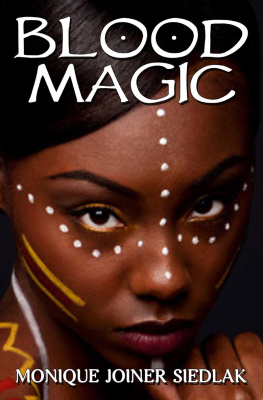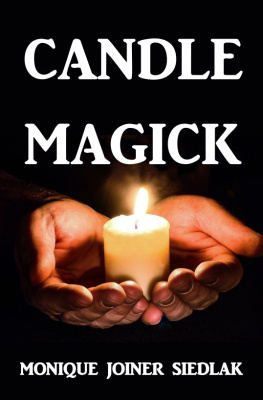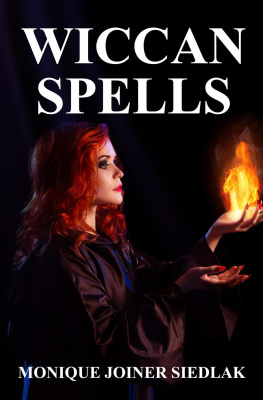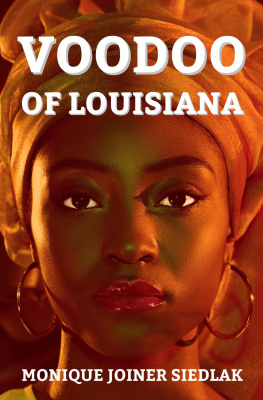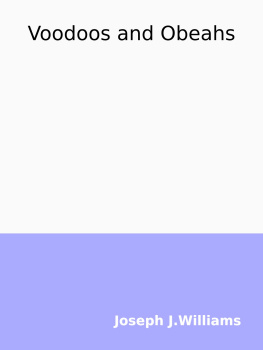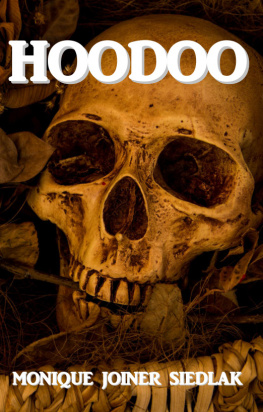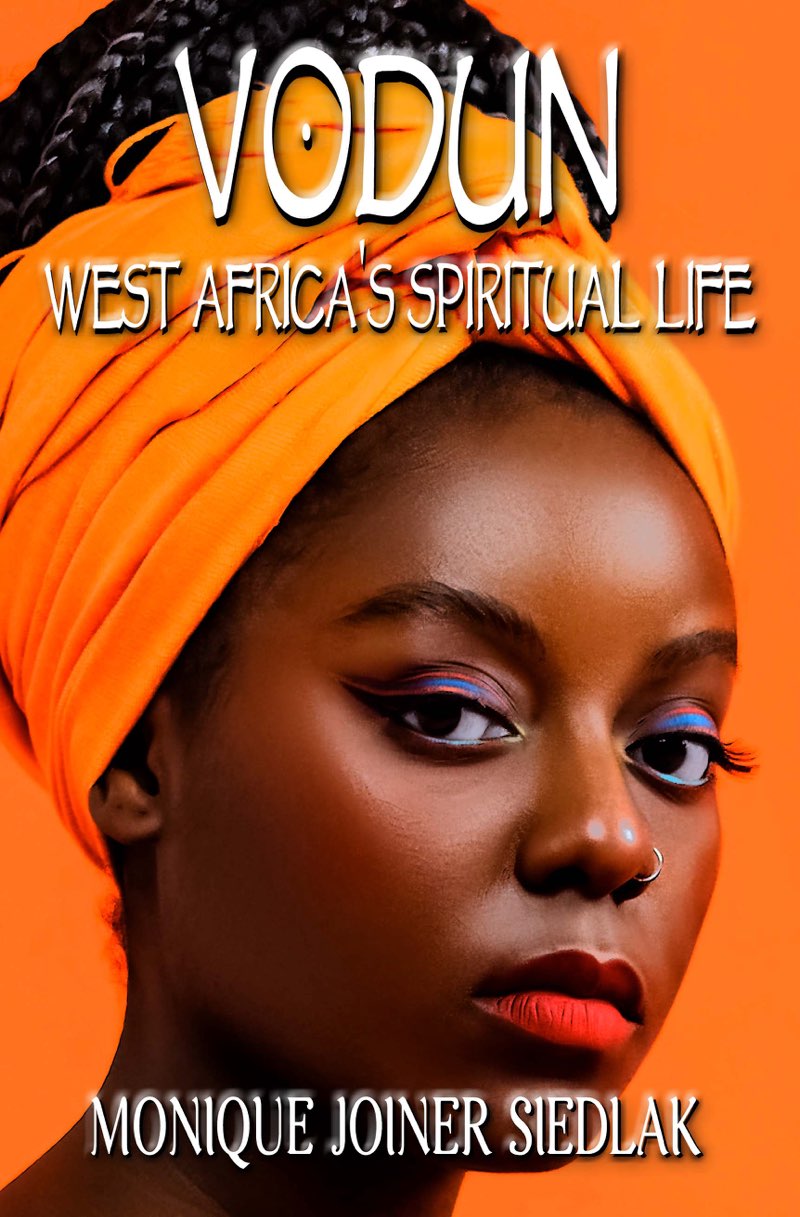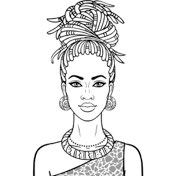Vodun
West Africas Spiritual Life
Monique Joiner Siedlak
Vodun: West Africas Spiritual Life Copyright 2021 by Monique Joiner Siedlak
ISBN:978-1-950378-62-3
All rights reserved
The content contained within this book may not be reproduced, duplicated or transmitted without direct written permission from the author or the publisher.
Under no circumstances will any blame or legal responsibility be held against the publisher, or author, for any damages, reparation, or monetary loss due to the information contained within this book, either directly or indirectly.
Legal Notice
This book is copyright protected. It is only for personal use. You cannot amend, distribute, sell, use, quote or paraphrase any part, or the content within this book, without the consent of the author or publisher.
Disclaimer Notice
Please note the information contained within this document is for educational and entertainment purposes only. All effort has been executed to present accurate, up to date, reliable, complete information. No warranties of any kind are declared or implied. Readers acknowledge that the author is not engaged in the rendering of legal, financial, medical or professional advice. The content within this book has been derived from various sources. Please consult a licensed professional before attempting any techniques outlined in this book.
By reading this document, the reader agrees that under no circumstances is the author responsible for any losses, direct or indirect, that are incurred as a result of the use of the information contained within this document, including, but not limited to, errors, omissions, or inaccuracies.
Cover Design by MJS
Cover Image by AndreyCherkasov@depositphotos.com
Published by Oshun Publications
www.oshunpublications.com
Other Books in the Series
African Spirituality Beliefs and Practices
Hoodoo
Seven African Powers: The Orishas
Cooking for the Orishas
Lucumi: The Ways of Santeria
Voodoo of Louisiana
Haitian Vodou
Orishas of Trinidad
Connecting With Your Ancestors
Black Magic
The Orishas
Contents
In this book, we are going to talk about different aspects of Western African spirituality. I assume you have some knowledge of African spirituality, but you are curious to learn more. This book can also serve as a jumping-off point while engaging in the culture.
The main focus here is West African Vodun and its derivatives. I made this decision as I believe it is one of the Western African traditions most substantial illustrations. Yorubas religion is much more popular, and there is a lot of information made available to the public. It wouldnt be near as fun or intriguing as a case study, so you will find many free form discussions of the Yoruba religion. This is because the Yoruba have a close history with Benins people and have similar spiritual ideas and practices. This makes their religion an exciting place to compare, contrast, and analyze.
You will find African spirituality to be diverse and freeing. These religions have a simultaneously releasing and immersive view of the world and its nature. While they govern many aspects of a persons life, they do not come with the kind of baggage, cynicism, and indeterminism that come with religions like Christianity or Catholicism.
What you can expect to find in the following chapters are:
- A discussion on the origins of West African stories and implications.
- A discussion of gods and goddesses and their roles within the Universe and life.
- We will talk a little about West African metaphysics, specifically how they make sense of the physical and spiritual world.
- We will define the role of God in the lives of people as shown in West African religions.
- We will tell stories of the gods and goddess and their significance for us and the faith as a whole.
- We will discuss ancestral spirits, rituals, and customs related to them and worship.
- Ancestral spirits concepts of death and the afterlife.
- How Vodun adherents choose who to worship, its traditions, attitudes of its supporters, and the nature of its ceremonies.
- The curious cultural and societal aspects of these West African communities.
West Africa is home to over 380 million people. It is made up of 16 countries whose history is closely intertwined, with very few exceptions. Nine of its largest cities are in three countries: Nigeria, Ghana, and the Ivory Coast. West Africa boasts a diversity of ethnicities and cultures, the largest races in Yoruba, Igo, Fulani, Akan, and Wolof. The people of West Africa mainly speak non-Bantu Niger-Congo languages.
Although there are large groups of Christians in the region, Islam is the dominant religion reaching over 60% of West Africa. Traditional West African faiths are the oldest in the area with historical and cultural significance (Mbiti, 1994). The most significant religions being Akan, Yoruba, Odinani, and Sere. Vodun is practiced by 11% of the people of Benin (Folly, 2020). It is also found in many neighboring countries and the Americas in different versions. Still, these are mainly consistent with each other.
Here we will look at different Supreme Being concepts in West African religion, including their stories and roles. A clearer picture will emerge as we get further along, but first, lets cover the basics.
A Supreme Being refers to a creator, God, or the Universes ultimate source and existence in the simplest terms. In the Western Hemisphere, we simply understand this as God. Like God, the Supreme Being has many common characteristics we know about a God, like omnipotence and omniscience. There are similarities in the majority of West African religions, but there are some defining differences. For instance, the Supreme Being is more deist. The everyday ruling and governing of the Universe are done through lesser deities or gods that he has created or emanated from him (God: African Supreme Beings, n.d.). Whereas for us, God is considered an intervening presence heavily invested in the worlds affairs and mankind. Here we can start to see a different picture emerge.
One might be tempted to think the deities that function under Supreme Beings are analogous to Christianitys concepts of angels, spirits, and other forces, but that is inaccurate. Spirits such as angels presumably act under the direction of God with a specific purpose or goal for mankind. The Christian idea of God is decidedly ruler-like and why he is compared to a king. This is not as obvious in most West African religions. Here there is a vast chasm between the Supreme Being, his creation, and all other divinities in the Universe not directly under the Supreme Beings influence. Some West African religions where the Supreme Being plays more of a definitive role in its followers lives. But most do not, and followers usually dont even directly worship the Supreme Being.


